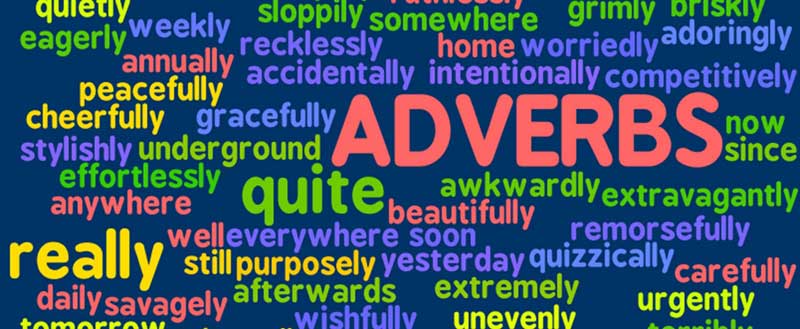
Adverbs are used to modify a verb, an adjective, or another adverb:
[1] Mary sings beautifully
[2] David is extremely clever
[3] This car goes incredibly fast
In [1], the adverb beautifully tells us how Mary sings. In [2], extremely tells us the degree to which David is clever. Finally, in [3], the adverb incredibly tells us how fast the car goes.
Before discussing the meaning of adverbs, however, we will identify some of their formal characteristics.
Formal Characteristics of Adverbs
From our examples above, you can see that many adverbs end in -ly. More precisely, they are formed by adding -ly to an adjective:
| Adjective | slow | quick | soft | sudden | gradual |
| Adverb | slowly | quickly | softly | suddenly | gradually |
Because of their distinctive endings, these adverbs are known as -LY ADVERBS. However, by no means all adverbs end in -ly. Note also that some adjectives also end in -ly, including costly, deadly, friendly, kindly, likely, lively, manly, and timely.
Like adjectives, many adverbs are GRADABLE, that is, we can modify them using very or extremely:
| softly | very softly |
| suddenly | very suddenly |
| slowly | extremely slowly |
The modifying words very and extremely are themselves adverbs. They are called DEGREE ADVERBS because they specify the degree to which an adjective or another adverb applies. Degree adverbs include almost, barely, entirely, highly, quite, slightly, totally, and utterly. Degree adverbs are not gradable (*extremely very).
Like adjectives, too, some adverbs can take COMPARATIVE and SUPERLATIVE forms, with -er and -est:
John works hard — Mary works harder — I work hardest
However, the majority of adverbs do not take these endings. Instead, they form the comparative using more and the superlative using most:
| Adverb | Comparative | Superlative |
| recently | more recently | most recently |
| effectively | more effectively | most effectively |
| frequently | more frequently | most frequently |
In the formation of comparatives and superlatives, some adverbs are irregular:
| Adverb | Comparative | Superlative |
| well | better | best |
| badly | worse | worst |
| little | less | least |
| much | more | most |













Error 212 origin is unreachable